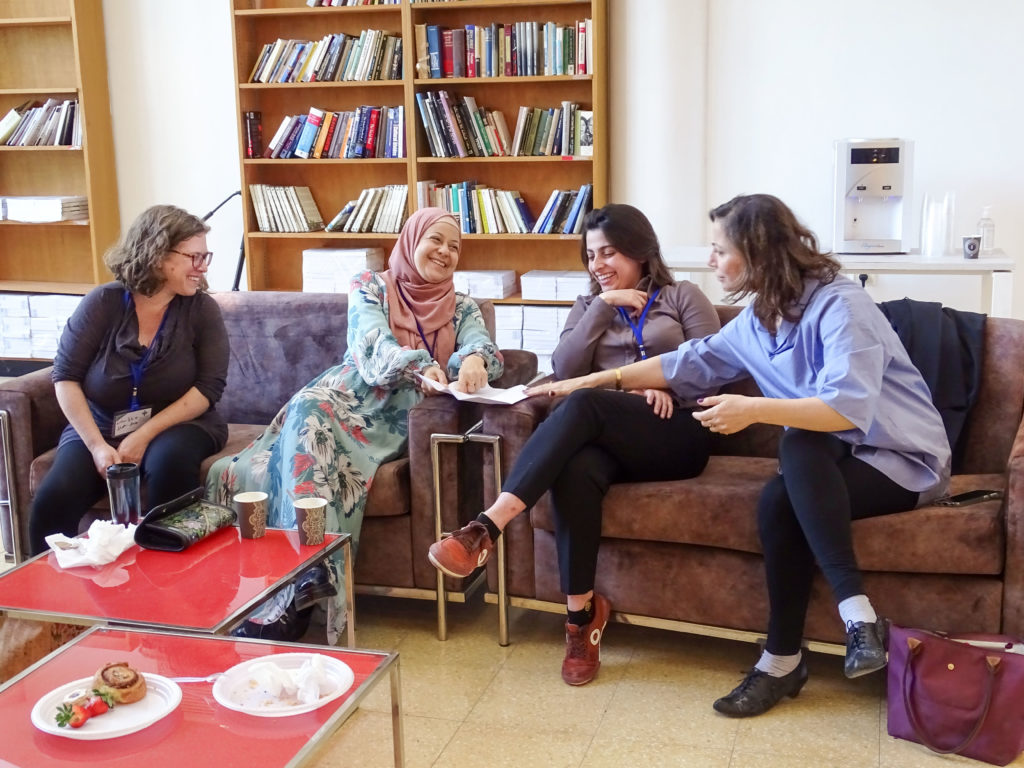The 2nd SFP Graduates Conference | Dialogue and Activism in a Crisis | March 2023
The second annual School for Peace Graduates Conference took place weeks ago, but its presence still lingers.
Our region is going through extremely turbulent times.
<< watch the short video with highlights from the conference >>
The Knesset is in the midst of a legislative marathon to complete its attempts at a judicial reform, while hundreds of thousands of Jewish citizens are swarming the streets in unprecedented counterprotests. Although the Prime Minister has postponed the legislation process, it is clear to all that this is merely a temporary delay, and that there is not real intention to make any substantial changes.
Friendly countries who and have always held a cautious and conservative approach when it comes to criticizing Israel, are now adopting a clearly antithetical stand against Israeli policy and government representatives.
Thanks to this “crisis”, Palestinian society within the territories sketched out in both 1948 and 1967, suffer more acutely than ever. Crime continues to run rampant; citizens are unsafe in their own cities; building demolition rates are higher than ever; resources and budgets are being cut; threats of expulsion and evacuation are launched and executed; and deadly Israeli attacks in the West Bank grow more frequent.
On top of all that, many Jews are upset with the Palestinian citizens of Israel for not joining the protests against the legislative reform. And many Palestinians are resentful that Jews are only now taking a stand against the erosion of democracy, but remained silent through continuous Palestinian struggles against discrimination in Israel since its founding: such as the “Israel as the Nation State of the Jewish People” act, made law in 2018.
It’s fair to say that we are all, both Jews and Palestinians, more prone to feelings of anxiety, dread, suspicion, anger, confusion and despair.
In this context, and against all odds, roughly 100 Jewish and Palestinian graduates of different SFP courses gathered in Wahat al-Salam-Neve Shalom for a two day weekend conference (Fri-Sat, March 17-18, 2023), full of bi-national and uni-national dialogue groups, lectures, workshops, and Q&A and brainstorming sessions, in which they pooled their knowledge, and bolstered the bonds of their community.
It is anything but trivial that so many people have decided to dedicate two full days of their weekend schedules to a challenging conference rather than rest.
And it is even more astounding that they decided to do so in a time like this.
So, what did we do during the conference?
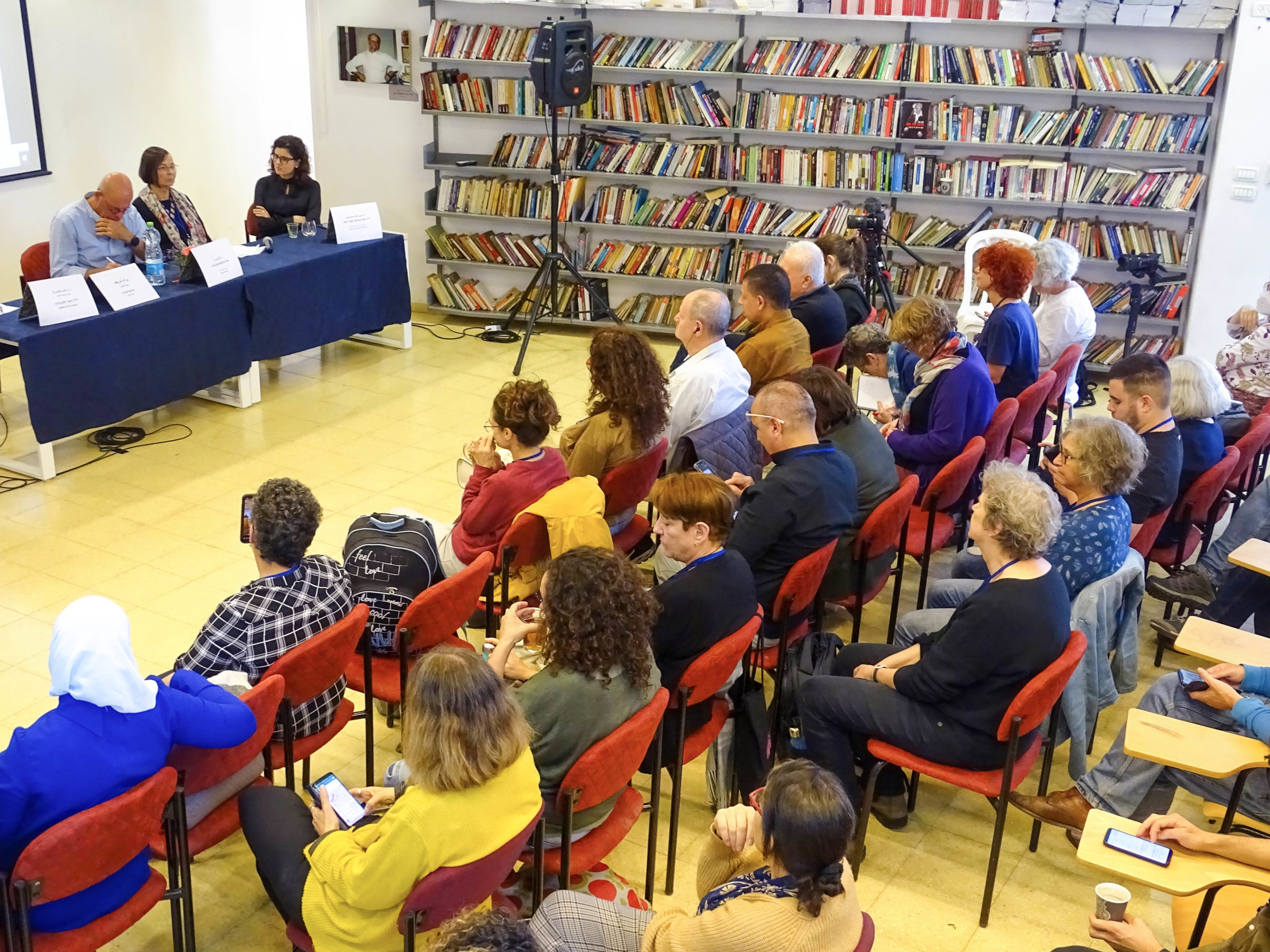
The opening event featured a panel with Dr. Nasreen Haddad Haj-Yehya, herself an SFP alumna, who presented data about discrimination against Palestinians in Israel, and its ties to the existence or lack of motivation to engage in political or social activism. Alongside her, Avraham (Avrum) Burg gave a talk about the importance of Jewish-Palestinian cooperation in the current political and civilian landscape, and placed the main crux of the conference at the crossroads between crisis, dialogue and activism.
Roi Silberberg, SFP director, further developed this tripartite relationship, adding that what sets the SFP dialogue method apart is its focus on identities as opposed to opinions. Our aim is not to change people’s opinions, but to evolve as human beings: to become more involved, and better understand the underlying reality and importance of Jewish-Palestinian relations, in order to change our environment for the better.
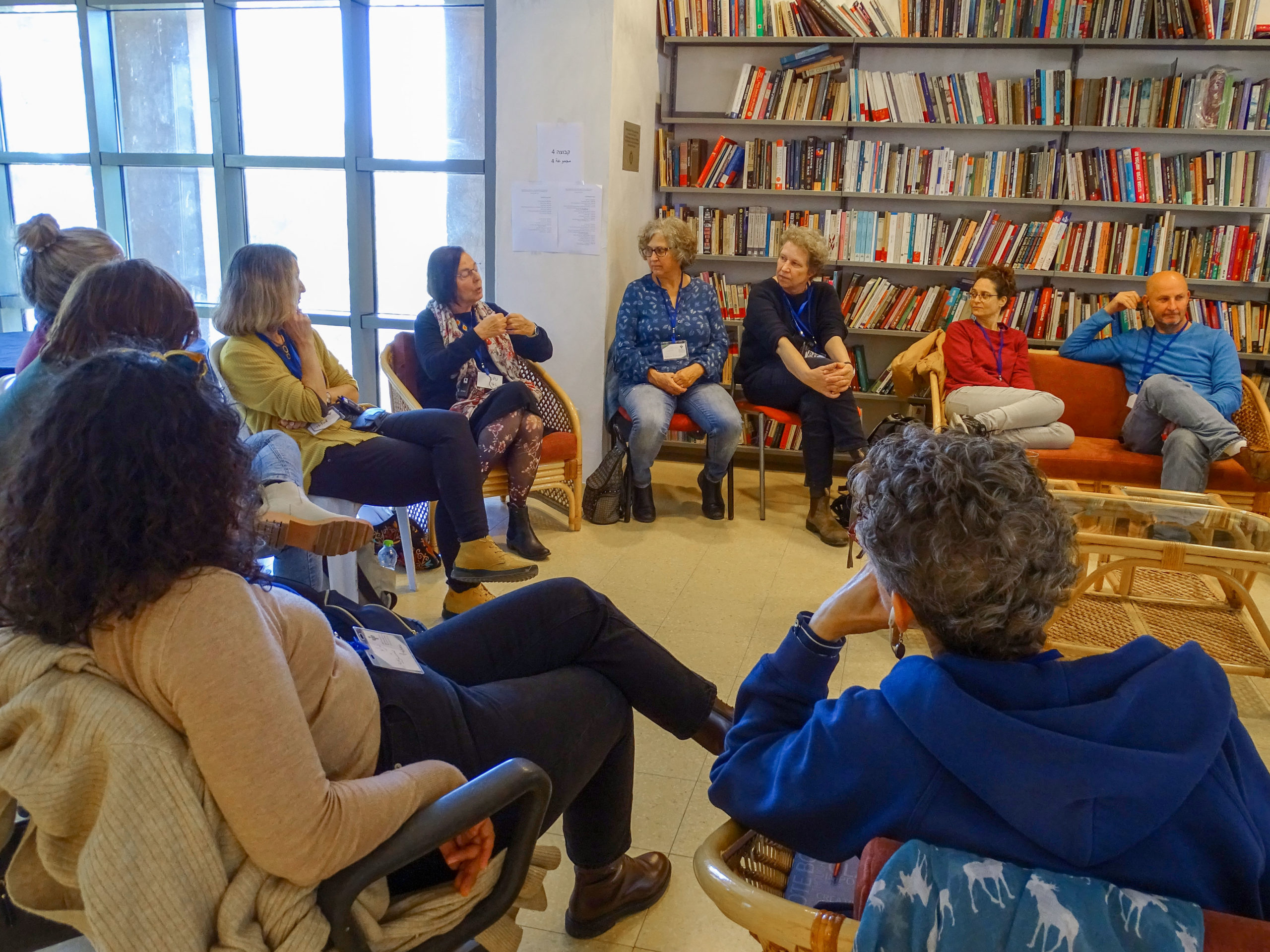
Group dialogue sessions were meaningful and fascinating. In the span of two days, participants met in set dialogue groups 4 times: 3 times in a bi-national format, and 1 time in a national forum. The last conference taught us participants need continual dialogue throughout the conference, which we have implemented this year with terrific results.
Groups received predetermined topics for discussion in each session. Some stayed on topic, while others used the allotted subject as a springboard to discuss other issues. A recurring theme was the possibility of Palestinian-Jewish cooperation against the current resistance to the judicial reform. Another noteworthy discussion, held in one of the groups, was the role of the younger generation in dialogue and shared activism for equality and justice, as well as the conditions under which we should assume responsibility for the future, even though former generations are responsible for the state of the present. Furthermore, another group discussed the issue of language and translation – a common topic in our dialogue groups – which manifests unequal power relations between Jews and Palestinians, affecting them in their daily lives and in dialogue. Whomever gets to decide which language we use in dialogue, and whether or not we use simultaneous translation, has a superior role compared to those who do not. Participants in all the groups candidly shared their complex feelings about our political reality and obstacles to dialogue, as well as their mutual frustrations with one another. However, exchanges were permeated by a sense of acceptance and understanding, even when the messages were difficult to accept.
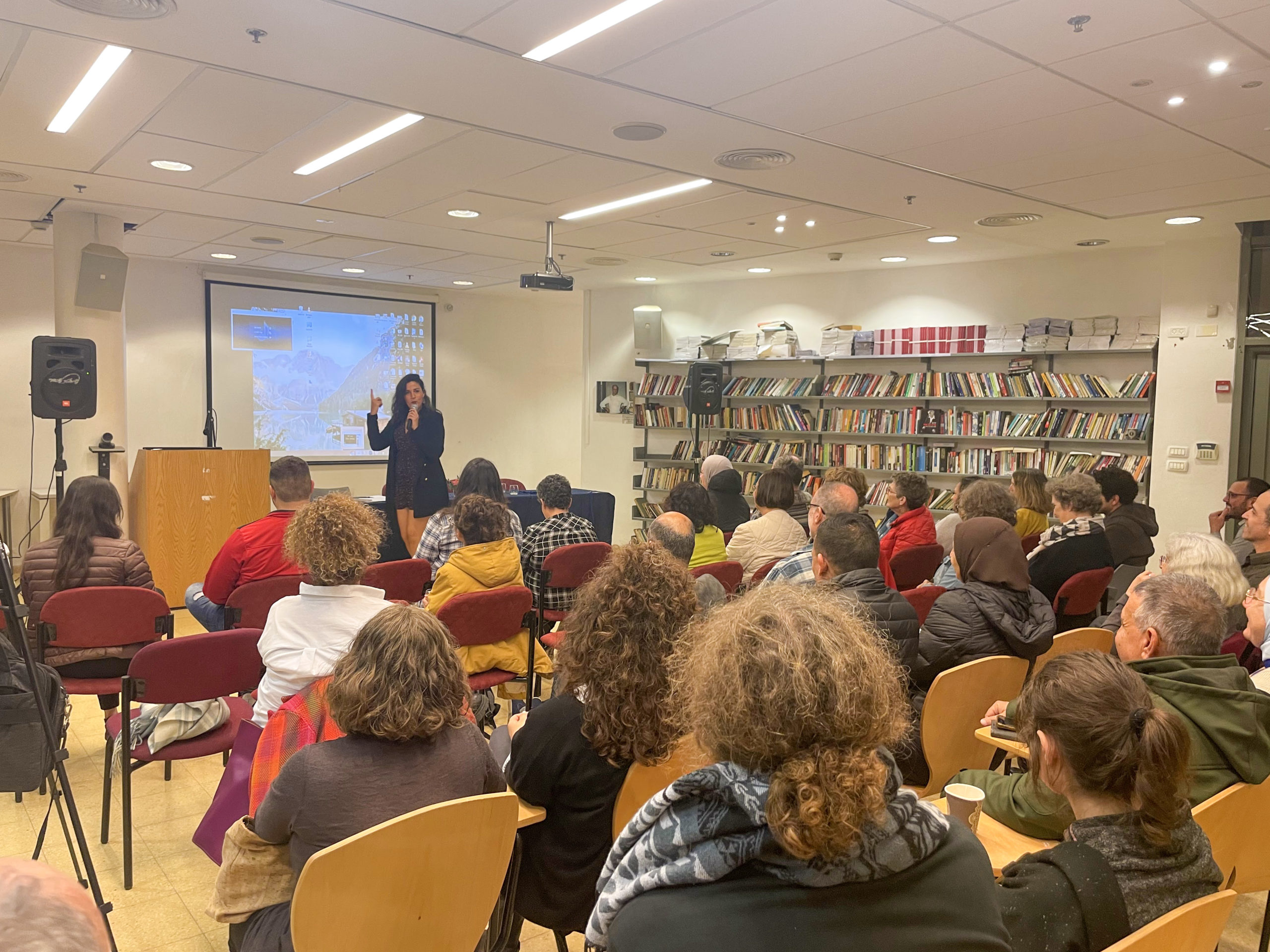
Friday evening social event – Eden, who recently graduated our Tel Aviv University ‘Dialogue between Identities’ course, sweetened our night with her powerful and moving singing. And comedian Noam Shuster-Eliassi delivered an irreverent standup show, poking fun at everything from Jewish-Palestinian relations, herself, us, Wahat al-Salem-Neve Shalom, and the current protests, to egg vitrification. A good bout of rolling laughter is just what we needed to unpack some of the tension we had accumulated during the day.
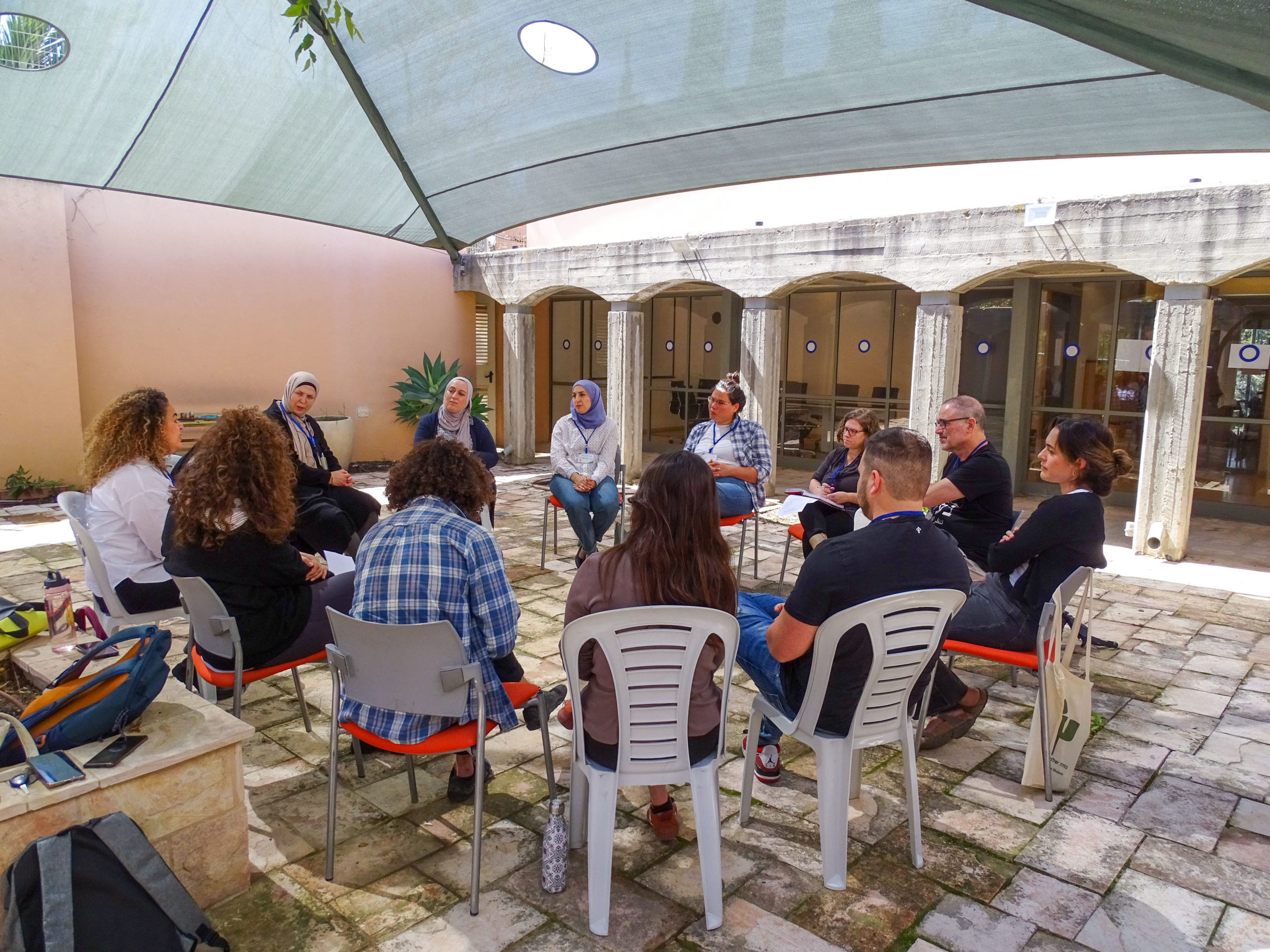
The second day began with a political imagination workshop. The aim of the workshop was to liberate ourselves from the bonds of the oppressive and violent political reality surrounding us in order to practice visualizing the future we want to see, set targets and sketch out the path towards their achievement. No easy feat! Our imagination is like a muscle that gets stuck on specific ways of working, effected by the rote habits instilled in us since childhood. Practicing the ability to imagine a better future can be very difficult, and even more so in a bi-national format. This workshop featured separate national sessions that resulted in participants sharing interesting and impactful insights.
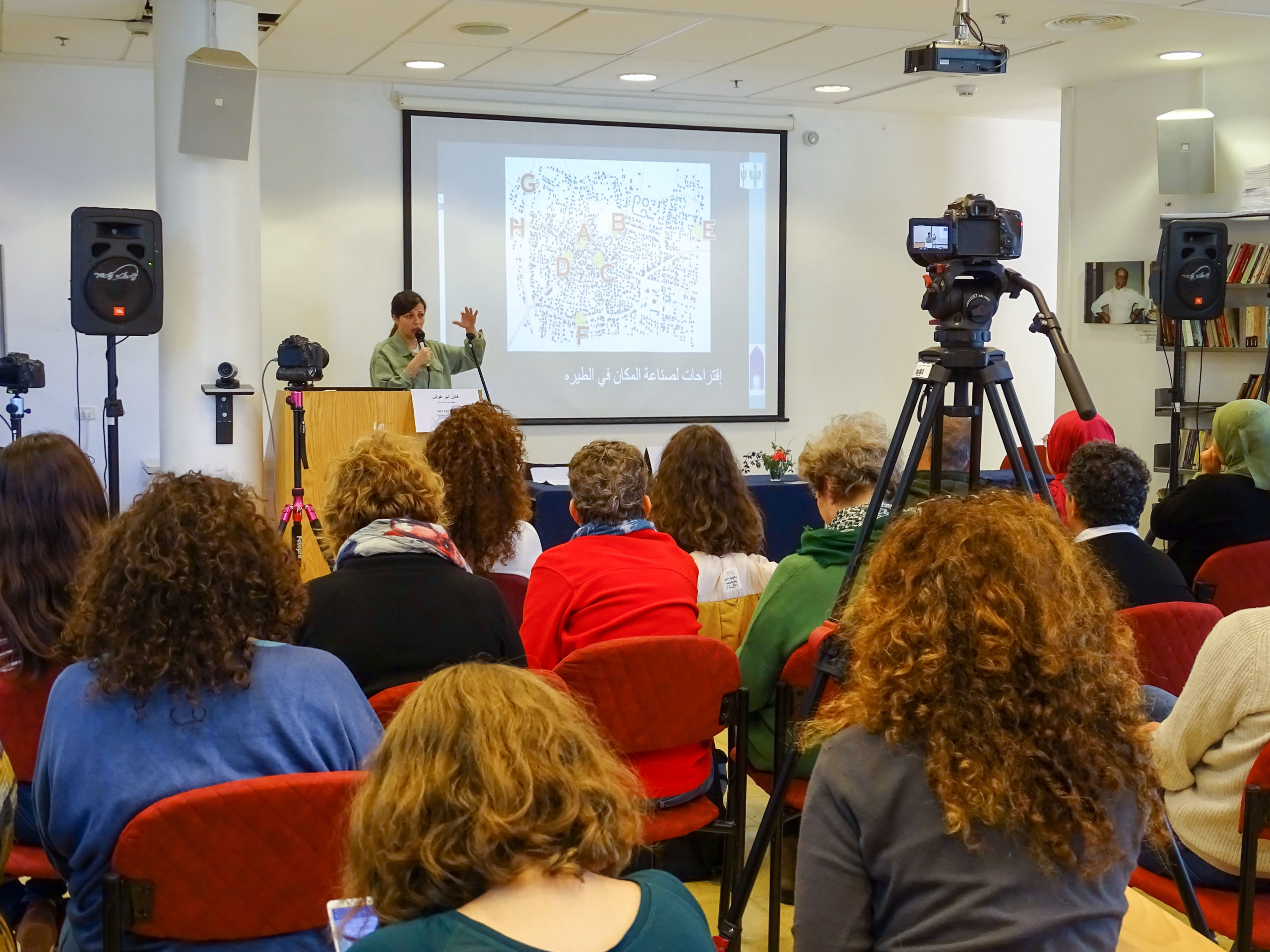
The final event of the conference was dedicated to presenting this year’s recipients of the School for Peace grants for reality changing graduate projects. Yasmine Shbita, City Planners Course graduate and member of the joint SFP and Arab Center for Alternative Planning Forum, won the Dr. Nava Sonnenschein exceptional project award for her placemaking project in Tira. In addition, 3 other projects won awards: Nidal Ali Nasser, Environmental and Climatic Justice Course graduate, for his “construction wastes recycling” project in schools; Einat Weizman for “Dogme 48” – an interdisciplinary art project that uses archive documents; and Tamar Yarom for her current work on a documentary film about the “Two States, One Homeland” initiative that promotes the idea of an Israeli-Palestinian confederation.
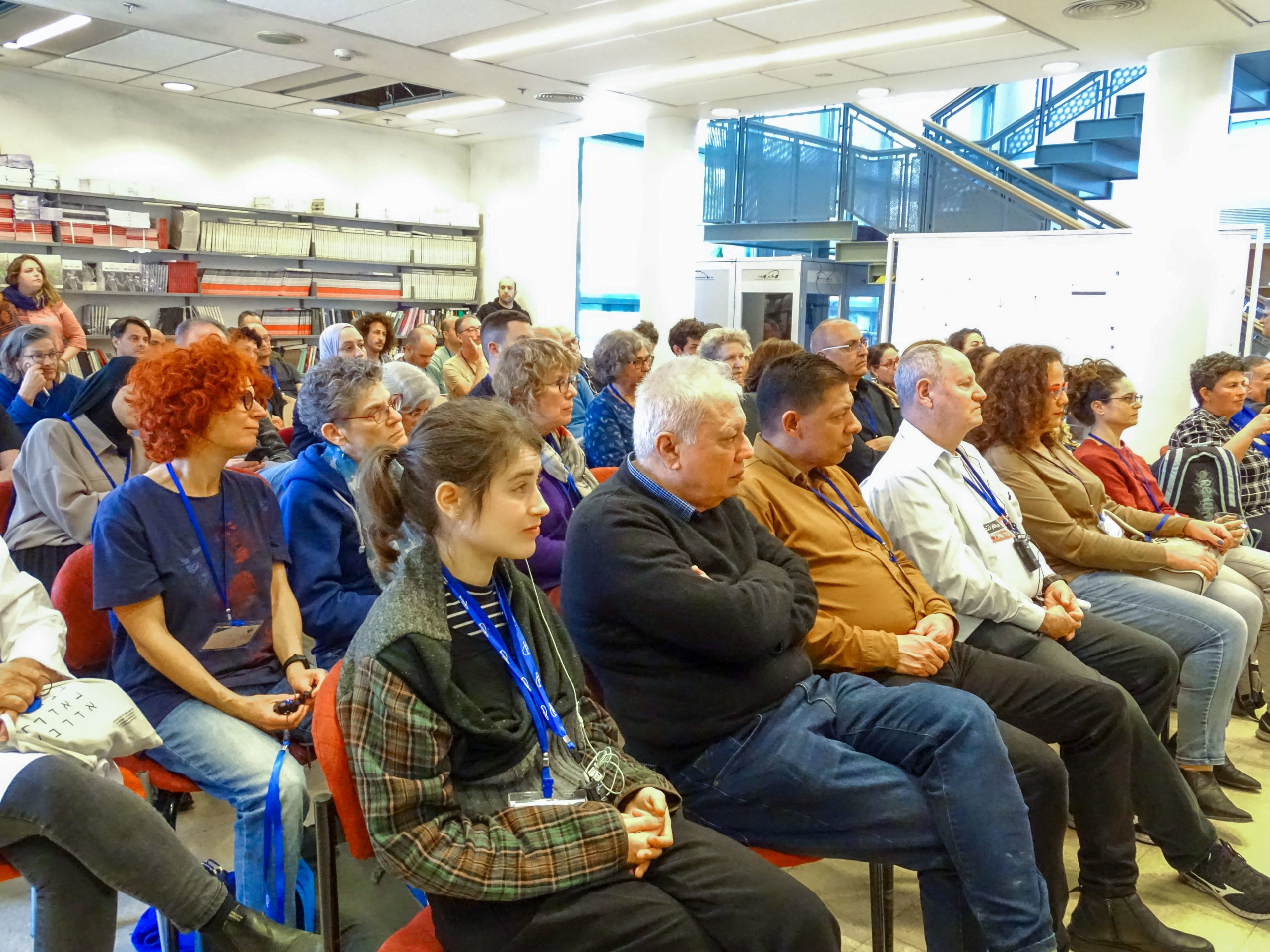
The conference allowed us to feel the presence of our community, and that we are a community. Things did not always go smoothly. As one of our graduates, Ishmael, put it: “you don’t come to the SFP to have fun…” We insist on an unfiltered view of a painful and bloody reality because we believe that no other path can lead to reparations and healing. Solutions won’t come quickly, but we believe that laying the truth on the table, and learning to accommodate the wide range of attitudes towards it is a worthwhile endeavor that we offer to the world. Our aim is not jus to facilitate any kind of partnership, but one that refuses to mute and erase unequal power relations. We continue to pose the question – how can an equal Palestinian-Jewish partnership emerge from a political reality in which Jews enjoy privileges, and Palestinians are denied their rights?
We here at the School for Peace facilitate a platform for our graduates to spend time together, speak plainly and openly, listen to one another in order to sharpen their views, foster meaningful relationships, and work to change reality – little by little.
We would like to thank the members of our community who chose to spend their precious weekend with us, learning and growing.
We would also like to send our heartfelt thanks to those who have supported this event, and helped make it the amazing experience that it was.
We are here for you. We are here. Together.
The School for Peace Team
Watch the conference highlights video
Watch photos from the conference
♣♣♣
More about the conference:
The 2nd School for Peace Graduates Conference on: Dialogue and Activism in a Crisis
17th-18th of March, 2023 | Neve-Shalom-Wahat al-Salam
Graduates of all SFP courses throughout the years are invited
Why attend the conference?
- Network with other graduates active in various fields
- Participate in national and bi-national dialogue sessions throughout the conference
- Listen to illuminating political lectures
- Discuss the political situation and possible avenues for action
- Share, hear about, and join meaningful initiatives
- Remember that you are not alone, especially during this current crisis
Keynote panel speakers:
Dr. Nasreen Haddad-Haj Yahya – Partner at the Portland Trust and NAS research and consulting
Abraham (Avrum) Burg – Author and public figure
Special guest:
Noam Shuster-Eliassi in a bi-lingual standup routine
Conference facilitators:
Dr. Roi Silberberg and Baraa Sharif
Program:
Friday 17.03.2023
09:00-10:00 – Reception and registration
10:00-10:30 – Opening ceremony and program presentation
10:30-11:45 – Binational dialogue session 1: acquaintance in set mixed groups
11:45-12:25 – Recess and regrouping
12:15-13:45 – Main conference event: Dialogue and Activism in a Crisis – panel featuring:
- Nasreen Haddad-Haj Yahya, Partner at the Portland Trust and NAS research and consulting
- Abraham (Avrum) Burg – Author and public figure
13:45-15:30 – Lunch (at the hotel) + room allocation to overnight guests
15:30-17:00 – National dialogue in set groups
17:00-17:30 – Recess and regrouping
17:30-19:00 – Binational dialogue 2 in set groups
19:00-20:00 – Dinner (at the hotel)
20:00-21:30 – Social evening mixer: Noam Shuster-Eliassi in a bi-national standup routine + small recap group conversations “How’s it going?”
Saturday 18.03.2023
08:00-09:00 – Breakfast for guests of the hotel
09:00-10:15 – Political imagination workshop
10:15-10:30 – Recess and regrouping
10:30-12:00 – Binational dialogue 3 in set groups – discussion of participants’ initiatives
12:00-12:30 – Recess and regrouping
12:30-14:00 – Presentation of School for Peace graduate projects that received the SFP grant + conference summary
14:00-15:00 – Lunch (at the hotel)
* Participation in the conference is free of charge, but requires registration in advance
* Participants are offered a subsidized rate for lodging at the Neve-Shalom hotel on Friday night

